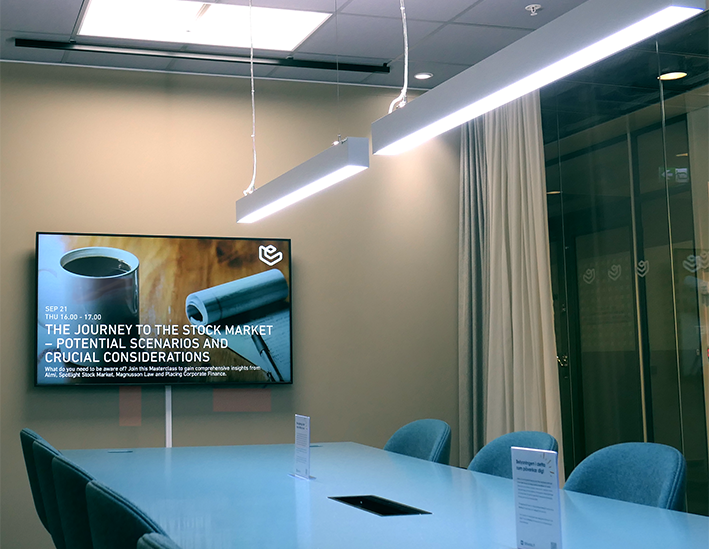Office
Energizing high-performers.
Lighting in office environments has traditionally focused on ergonomics and visual function, but light is not only for vision. In the retina, a sub-population of cells play an important function in synchronizing the body and its natural circadian rhythm with the solar day. Humans have individual light exposure needs to synchronize their circadian rhythm, which makes healthy office lighting important.


Lighting to optimize your day.
Biocentric lighting delivers the right type of light at the right time of day to help you sustain your natural circadian rhythm. In an environment with mimicked daylight, staff members feel better, see higher levels of concentration and find it easier to focus on tasks¹,². Proper lighting ergonomics reduce tension in eyes, neck, and shoulders, and has been shown to ease headaches for some customers.

Benefits of Biocentric lighting
- Improved working memory³
- Higher employee comfort
- Better health and well-being


Employee wellness
With Biocentric lighting, employers can feel confident in supporting staff well-being and comfort whilst at work. Read more about the benefits of Biocentric lighting.
Area adaptability
With Biocentric lighting solutions, the light can be adapted to different activities throughout the day, for conference rooms and meetings.
Flexibility
Create the ultimate work environment for employees. Alven can be placed in the office or home workplace, entirely installation-free and easy to operate.
Downloadable Materials
References
- Van de Putte, E. et al. The influence of integrative lighting on sleep and cognitive functioning of shift workers during the morning shift in an assembly plant. Appl Ergon 99, 103618, doi:10.1016/j.apergo.2021.103618 (2022).
- Hviid, C. A. P., C.; Dabelsteen, K. H. A field study of the individual and combined effect of ventilation rate and lighting conditions on pupils performance. Building and Environment 171, 106608, doi:https://doi.org/10.1016/j.buildenv.2019.106608 (2020).
- Zhou, Y. et al. Does Bright Light Counteract the Post-lunch Dip in Subjective States and Cognitive Performance Among Undergraduate Students? Frontiers in Public Health 9, doi:10.3389/fpubh.2021.652849 (2021).

